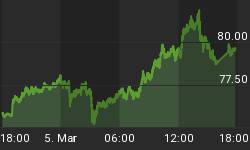Consumers are about to find out that the Affordable Care Act, widely known as Obamacare is not exactly affordable. The Wall Street Journal says Health-Insurance Sticker Shock is just around the corner.
Health-insurance premiums have been rising--and consumers will experience another series of price shocks later this year when some see their premiums skyrocket thanks to the Affordable Care Act, aka ObamaCare.The reason: The congressional Democrats who crafted the legislation ignored virtually every actuarial principle governing rational insurance pricing. Premiums will soon reflect that disregard--indeed, premiums are already reflecting it.
Central to ObamaCare are requirements that health insurers (1) accept everyone who applies (guaranteed issue), (2) cannot charge more based on serious medical conditions (modified community rating), and (3) include numerous coverage mandates that force insurance to pay for many often uncovered medical conditions.
Guaranteed issue incentivizes people to forgo buying a policy until they get sick and need coverage (and then drop the policy after they get well). While ObamaCare imposes a financial penalty--or is it a tax?--to discourage people from gaming the system, it is too low to be a real disincentive. The result will be insurance pools that are smaller and sicker, and therefore more expensive.
Eight states--New Jersey, New York, Maine, New Hampshire, Washington, Kentucky, Vermont and Massachusetts--enacted guaranteed issue and community rating in the mid-1990s and wrecked their individual (i.e., non-group) health-insurance markets. Premiums increased so much that Kentucky largely repealed its law in 2000 and some of the other states eventually modified their community-rating provisions.
While ObamaCare won't take full effect until 2014, health-insurance premiums in the individual market are already rising, and not just because of routine increases in medical costs. Insurers are adjusting premiums now in anticipation of the guaranteed-issue and community-rating mandates starting next year.
Although President Obama repeatedly claimed that health-insurance premiums for a family would be $2,500 lower by the end of his first term, they are actually about $3,000 higher--a spread of about $5,500 per family.
Aetna CEO Sees Obama Health Law Doubling Some Premiums
Bloomberg reports Aetna CEO Sees Obama Health Law Doubling Some Premiums
Health insurance premiums may as much as double for some small businesses and individual buyers in the U.S. when the Affordable Care Act's major provisions start in 2014, Aetna Inc. (AET)'s chief executive officer said.While subsidies in the law will shield some people, other consumers who make too much for assistance are in for "premium rate shock," Mark Bertolini, who runs the third-biggest U.S. health-insurance company, told analysts yesterday at a conference in New York. The prospect has spurred discussion of having Congress delay or phase in parts of the law, he said.
"We've shared it all with the people in Washington and I think it's a big concern," the CEO said. "We're going to see some markets go up as much as 100 percent."
The Obama administration said last year that "middle-class families" buying insurance through the law's new online exchanges may save as much as $2,300 a year starting in 2014. Nick Papas, a White House spokesman, declined to comment on Bertolini's predictions.
The CBO estimated in 2009 that the law will increase premiums 10 percent to 13 percent for individuals and have little effect on small and large-employer plans. After the subsidies are factored in, individual bills will go down by about 60 percent, the agency predicted.
Fantasyland CBO Projection
Obamacare pretty much did what Romneycare did and the results will be the same - higher premiums.
Specifically, Obamacare mandated acceptance of anyone, provided insufficient penalties for the young and healthy to drop out, and mandated an increase in things that are covered.
The CBO added all of that up and concluded prices would go down by as much as 60 percent. I wonder what alternate universe the CBO lives in.
How Much of an Increase?
Expected increases depend on existing state rules as well as company size. States foolish enough to already have Obamacare-like mandates will be impacted the least.
Big employers will fare best, small companies and individuals will be hit the hardest. Wasn't Obamacare supposed to fix that?
The Journal notes that residents of New York, New Jersey, and Vermont already pay twice what others pay. Those in Massachusetts (the home of Romneycare) shell out almost as much.
Residents of Arizona, Arkansas, Georgia, Idaho, Iowa, Kentucky, Missouri, Ohio, Oklahoma, Tennessee, Utah, Wyoming and Virginia will likely see the largest increases -- somewhere between 65% and 100%. Another 18 states, including Texas and Michigan, could see their rates rise between 35% and 65% says Journal writers Merrill Matthews and Mark Litow.
Mr. Matthews is a resident scholar with the Institute for Policy Innovation in Dallas, Texas. Mr. Litow is a retired actuary and past chairman of the Social Insurance Public Finance Section of the Society of Actuaries.
Aetna Overstating Increases?
It's possible, if not likely, that Aetna is trumping up the increases so when they do happen, a mere 35-50% will not seem so large vs. the projected 100% increases. Then again, Aetna may fully intend to hike some rates by 100% over the course of a few years.
It's also possible that some individual policy-holders in high-cost states may benefit slightly, but if so it will be at huge expense to everyone else.
Thank Obama and Romney
Thanks Obama, and while we're at it, thank you too Romney because Obamacare and Romneycare are for all essential purposes, one and the same.
If you get a raise this year, don't be surprised if all of it (if not more than all of it) is eaten away in higher health-care premiums.
















